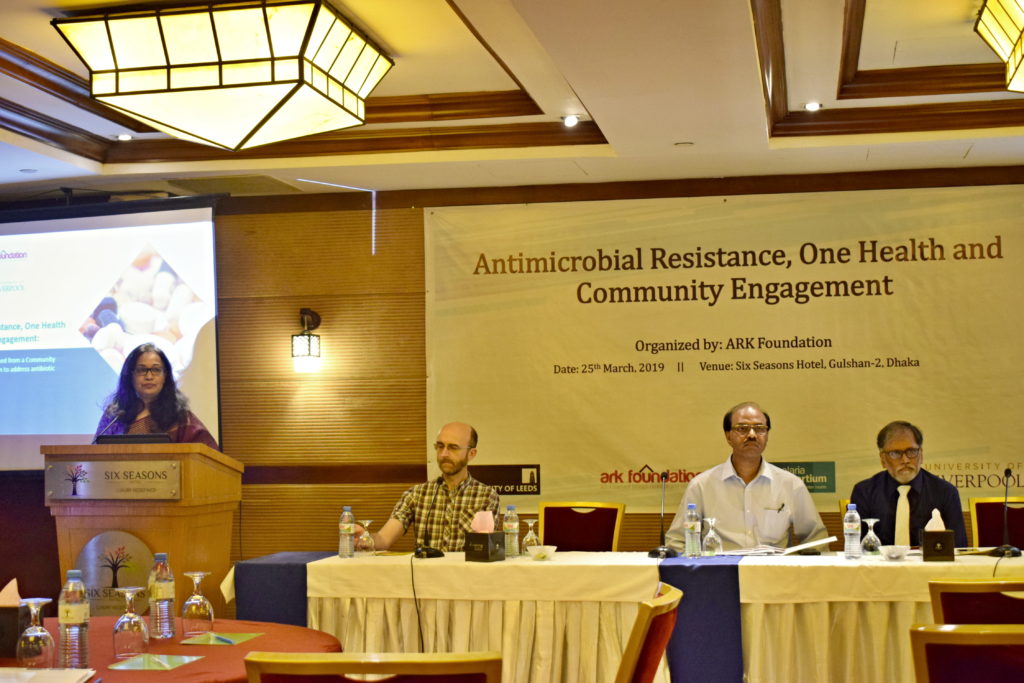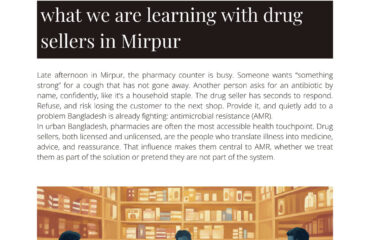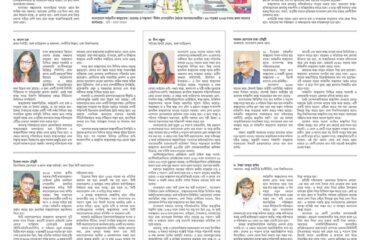On March 25, 2019, a workshop has held on “Antimicrobial resistance, One Health and Community Engagement” at Six Seasons Hotel, Gulshan-2, Dhaka. The workshop was organized by ARK Foundation, Bangladesh in partnership with University of Leeds and Malaria Consortium, UK. Professor Dr. Md. Abul Hashem Khan, Line Director, Community Based Health Care, Directorate General of Health Services (DGHS), Ministry of Health and Family Welfare, Bangladesh chaired the workshop. Professor Sayedur Rahman Khasru, Professor of Pharmacology, Bangabandhu Sheikh Mujib Medical University (BSMMU), Professor Nitish C Debnath, Chittagong Veterinary and Animal Sciences University, Dr. Prudence Hamade, Sr. Technical Advisor of Malaria Consortium, Dr. Rebecca King, Associate Professor of University of Leeds, Ms. Lauren E. Smith, Social and Behaviour Change Specialist of Malaria Consortium, Dr. Rumana Huque, Executive Director of ARK Foundation were present in the workshop among others.
Professor Dr. Md. Abul Hashem Khan stated that ARK Foundation has taken a commendable step by conducting the community based awareness programme on AMR. Mr. Prudence Hamade said that AMR is a serious public health problem affecting people all over the world. Antimicrobials are lifesaving drugs. In order to delay resistance, antimicrobials need to be taken only when needed to treat serious infections. The drugs need to be of high quality, besides full courses should be taken. Antibiotic misuse in animal is one of the main causes of antibiotic resistance and should be used for the treatment of sick animal, not for prevention or growth promotion.
Dr. Rebecca King said that community engagement approaches that are designed to be appropriate to deliver within existing health care system show great potential as mechanisms through which communities can identify solutions to addressing antimicrobial resistance. Ms. Lauren E. Smith, Social and Behaviour Change Specialist said that community Participation is key to designing effective interventions that can be scalable and sustainable. The community dialogue approach can empower communities to take action and improve their health. Dr. Rumana Huque, Executive Director, ARK Foundation said that a recent study conducted by ARK Foundation, University of Leeds and Malaria Consortium titled “Community Dialogues to prevent and control antibiotic resistance in Bangladesh” suggests that the community dialogue approach can play an important role to increase awareness among people on appropriate use of antibiotics. She added that tackling AMR will require a coordinated, collaborative and multidisciplinary approach, which will need to bring together stakeholders from a range of sectors, including human health, animal health, environment, agriculture and WASH (One Health).





